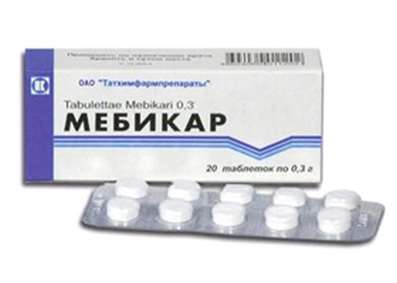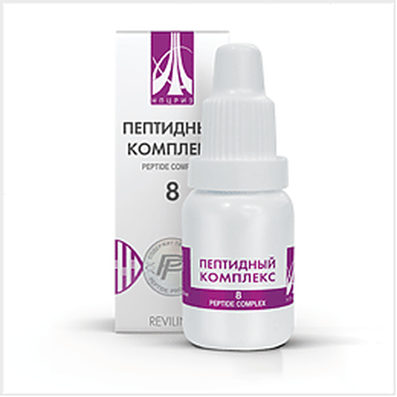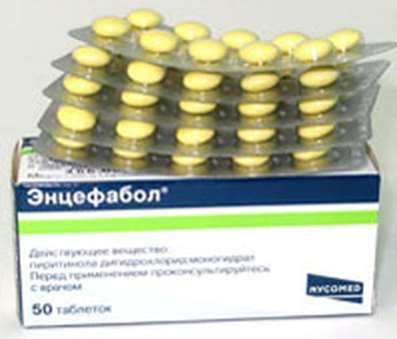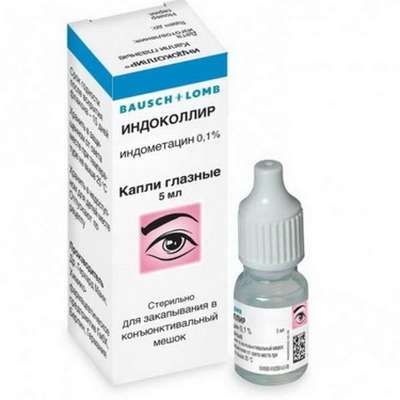Acetylcholine
22 Oct 2016
Physiologist talks about agonists and antagonists of receptors, nicotine and normalizing action of acetylcholine
The basic structural and functional unit of the brain are synapses - contacts between nerve cells. And the main character in the synapse - a neurotransmitter (a molecule that is released from the axon and influences to the next cell). The first discovery was the mediator of a chemical called acetylcholine. Acetylcholine is found in the early twentieth century, Henry Dale, when working with ergot. Already at that time he saw this activity of the molecule, which seriously affect the operation of various internal organs. And in the early 20-ies of the last century, the Austrian Otto Loewi showed that acetylcholine is a neurotransmitter in the peripheral nervous system.
Ingenious experiments Otto Levi, for which he received the Nobel Prize, looked like. He had two frogs, and he learned from each of the frog's heart. And further, respectively, placed in the heart of the first vessel with saline and filed via the vagus nerve (which is one of the main nerves) excitation of this frog heart, and the vagus nerve causes the heart to beat less often. Then Levi took a little fluid surrounding the heart is the first, and put on a second heart, and also the second heart began to beat less often. This effect was the first evidence of chemical signaling in the nervous system, because it is clearly something out of the vagus nerve is isolated and further ruled heart. Within a few years, Levy identified the substance as acetylcholine. Acetylcholine in the end turned out to be an important mediator of the peripheral nervous system. Besides, he still works in the brain, which I, of course, will tell.
By itself, the molecule acetylcholine quite unpretentious. In the center is choline, and attached to it the remains of acetic acid, so called acetylcholine. choline molecule is fairly simple, small, located in the center of a nitrogen atom, but, despite this, the choline - is an indispensable ingredient, that is, our body is not able to synthesize choline, so we must get it from food. Therefore, choline belongs to the category of so-called vitaminoidov. Real vitamins are often lacking in the diet, and pretty much all of choline, therefore, though it is an indispensable ingredient, choline deficiency, we usually do not experience. Although an excess of acetylcholine in the clinic still used choline administered by injection, for example, if a person has a stroke or brain trauma.
To improve brain and mental function buy Semax or Phenotropil.
Thus, acetylcholine - is the most important mediator of our peripheral nervous system, and the first zone, where it is extremely important - it neuromuscular synapses. It is the synapses that form the nerve cells to the cells of our skeletal muscles (they are also called striated muscle cells), and any movement, any reduction in any of our muscles - and we have them 400 pieces - a release of acetylcholine. So I move my finger, respectively, here in neuromuscular synapses, acetylcholine is released and causes contraction of the muscle. A neuron itself, by the way, is located in the spinal cord in the cervical region. Imagine a cell located in the spinal cord and its axon has a length of more than a meter. This in itself is impressive. We've learned that small and small cell neurons. The size of the largest neurons - is less than one-tenth of a millimeter. However, axons may be very long, it runs on electric impulse causes the release of acetylcholine, and, accordingly, acetylcholine acts on muscle cells and triggers their reduction.
As in every synapse in neuromuscular synapses work receptor proteins, ie, special molecules that are found on the membrane of muscle cells, acetylcholine and joins them as the key to the lock, and triggers muscle contraction. It is interesting that, in addition to acetylcholine receptors on these same works fairly well-known toxin, called nicotine, and nicotine is also able to run the contraction of muscles. However, if we take the human body, the body of vertebrates, need a fairly high concentration of nicotine that went muscle contraction. In general, the nicotine - a known toxin, the toxin tobacco, nightshade plants. Why Tobacco produces nicotine? He is the substance of this kind is necessary in order to defend themselves against herbivores, primarily on insects. And if Colorado potato beetle will eat the leaves of tobacco, its neuromuscular synapses very powerfully activated happen cramp, he will fall from the branches, and more than ever will have tobacco. That is, the evolution of forms of these toxins to defend themselves primarily on insects and mammals, they also operate, because our nervous system is not so different from the nervous system of the Colorado potato beetle.
But the beetles eat plants for a long time, so the evolution of its plant toxins is to set up a arthropods. And mammals eat plants only about 70 million years, so nicotine acts is not very much, at least not cause convulsions at us, but the brain is affected. Thus, receptors that work in neuromuscular synapses, called nicotinic receptors, that is, they are affected by nicotine, but also, of course, the acetylcholine. Addition of substances that activate the receptors work, there are substances that block the receptors work. For instance, nicotine activating receptor agonist of these receptors is called, and substances blocking operation receptors called receptor antagonists.
The antagonist of nicotinic receptors that work in neuromuscular synapses, is, for example, kurarin - another plant toxin that produce tropical vines, in order to defend themselves against insects. But, accordingly, kurarin, unlike nicotine, will cause no cramps, but on the contrary, paralysis, respiratory arrest, so the natives of the Amazon use this kind of toxins for hunting: smear the boom, and this arrow, hitting, for example, a bird or a small monkey, causes almost instant paralysis. In the clinic the like are used in order to relax the muscle fibers microdoses, muscle contractions. This is sometimes needed during surgery or some very strong cramps. So we any toxin, if properly thinning, can be turned into a drug, and it is based on a traditional pharmacy, which really uses plant toxins very efficiently and very widely.
In addition to the neuromuscular synapse, acetylcholine is still a very serious impact on the functioning of internal organs. It is an important mediator of the so-called autonomic nervous system. That part of our nervous system, which affects the muscles - is the somatic nervous system, motor nervous system. And an important feature of this part of the nervous system is the fact that there can be an arbitrary control. That is, I want to move a finger - no problem. And besides, there is the autonomic nervous system, which affects the function of internal organs, and there is no voluntary control. I can move the finger, but I can not say, for example, the skin in this area: "dilates blood vessels," or sweat glands "secrete sweat." In these areas, the entrance to our consciousness is closed to these functions, the so-called involuntary regulation. Nevertheless, she still managed from our central nervous system of the brain, and most of our internal organs is under dual control.
The autonomic nervous system is divided into two competing parts: sympathetic and parasympathetic. And acetylcholine - is the most important mediator of the parasympathetic nervous system, the part of the autonomic nervous system, which calms the internal organs, at least most of the internal organs. The heart beats weaker and less frequent, say, the pupils constrict, the bronchi constrict. Here, for example, the gastrointestinal tract under the influence of the parasympathetic system starts to work more actively. And acetylcholine, it turns out, will activate the gastrointestinal tract, inhibits the functioning of the heart, constricts the pupils. And acetylcholine agonist acts much the same. It is interesting that no internal organs receptors such as the muscles. Nicotine has no effect on them. They act other known toxin called muscarine. This toxin mushroom. It is an acetylcholine receptor agonist those who work in the parasympathetic system, and so these are called muscarinic receptors.
That is all Neuropharmacologists say to acetylcholine are two basic types of receptors: nicotinic and muscarinic. Accordingly, muscarine just will slow down the heart, activate the gastrointestinal tract, and, again, it is necessary to protect themselves from insects. The name "mushroom" indicates that it is unlikely that muscarine useful for all arthropods. For all of these receptors and have antagonist atropine is called. Also quite a known toxin, which is characteristic of, say, henbane, belladonna. And it will act in a direction opposite to acetylcholine. For example, under the influence of atropine dilates the bronchi, dilate the pupils (this, incidentally, is used in the clinic), the heart works more actively, so atropine part of some drug compounds that have a cardio effect.
This peripheral effects of acetylcholine, they are extremely important. But apart from the periphery of acetylcholine also works in the brain. In this case it is not the most important brain neurotransmitter, has more important mediators. However, acetylcholine neurons are found in various parts of the central nervous system: in the medulla oblongata, midbrain, in the hypothalamus in the cerebral hemispheres. As a rule, they have a fairly short axons, and they affect only the neighboring neurons. And the main effects of acetylcholine are associated with sleep and wakefulness balance, with total brain activation level, and often we find the so-called acetylcholine normalizing effect. That is, it turns out that if, for example, we have stress, it lowers the level of acetylcholine stimulation and makes the brain more relaxed. If, on the contrary, the brain is too slack, the acetylcholine is able to activate it. This is called a normalizing effect, and it is very useful and remarkable action, of course.
Nicotine just works in the central nervous system in such a normalizing way, so if a smoker, for example, stress, he smokes to calm down, and if he is in the morning is not as it should wake up and join in the working process, respectively he smokes in order to strengthen its neural network. All is good, but in fact such substances which are agonists or antagonists of various mediators, there are lots of unpleasant effects. The most important of these is called habituation and dependence. And addiction and dependence - a consequence of the very logic of the synapse. Every synapse in our central nervous system innately know which activity to transmit signals. And then imagine that you take, say, the same nicotine and forcing the synapse work harder. Synapse after a while begins to react and to reduce its own effectiveness. It becomes less receptors, less is synthesized mediator. Why would I do acetylcholine, if I still get the nicotine?
And in the end, if you are working on a synapse agonist, it gradually reduces its own effectiveness, and you have more and more of the agonist administered to achieve the desired level of activation. It is addiction. And accordingly, if you try to stop the drug does not enter agonist, then suddenly it turns out that there is no normalizing action of acetylcholine at all. And then, instead of normalization, on the contrary, there will be emotions, some state of dysphoria, alertness will not be displayed for some optimum value. Anyone who quit smoking after a period of serious use of nicotine, these effects knows, and smoking is a really important and difficult problem. Here the problem is not only nicotine, but tar and during inhalation, lung cancer, but this is another story.
Thus, acetylcholine is the major mediator of the peripheral nervous system, the neuromuscular synapse, the parasympathetic system and is an important mediator of our brain. Many neurons are using it, and some medicines is oriented to acetylcholine. Drugs that affect the muscles, internal organs, and even the central nervous system, up to the neurodegeneration that is part of modern drugs targeting acetylcholine, used to deal with such serious diseases such as, for example, Alzheimer's disease.

 Cart
Cart





